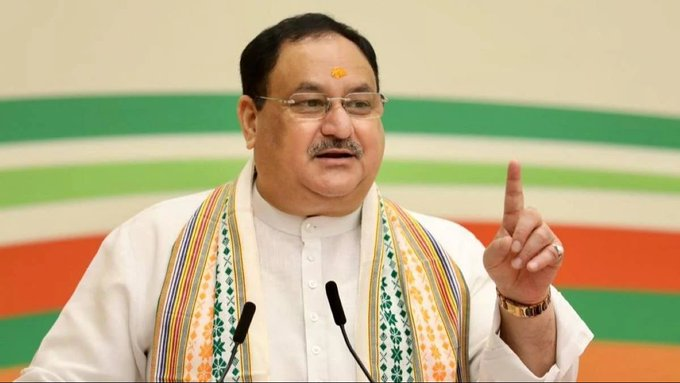Nadda Reviews Dengue and Malaria Situation, Calls for Urgent Preventive Action
Turning to dengue, Shri Nadda noted that all States and UTs (except Ladakh) are endemic to dengue and chikungunya.

- Country:
- India
Union Health Minister Shri Jagat Prakash Nadda chaired a high-level review meeting on 10 September 2025 to assess the country’s preparedness against Dengue and Malaria during the ongoing monsoon season. The session, attended by Union Health Secretary Smt. Punya Salila Srivastava and senior officers of the Ministry, focused on intensifying prevention, control, and community outreach in view of rising risks of vector-borne diseases.
Nationwide Vigil and Advisory to States
Shri Nadda issued an advisory to all Chief Ministers, stressing the need for vigilance in the coming months. He called upon States, Union Territories, local bodies, and community organizations to step up preventive and control activities, especially during this high-risk period. The Health Minister urged State Health Ministers to personally review their respective situations and direct their departments to finalize action plans within the next 20 days.
Local-Level Mobilization and Hospital Preparedness
Municipal Corporations, Panchayats, and other local bodies have been asked to intensify awareness drives, promote community participation, and take steps to eliminate mosquito-breeding sites, particularly in areas affected by water stagnation due to recent rains. Hospitals, including those under the Central Government, have been instructed to ensure adequate stock of drugs, diagnostic kits, bed capacity, and mosquito-free premises. A special review meeting for Delhi and the NCR region will also be held to ensure preparedness against potential outbreaks.
Progress in Malaria Control
The Health Minister highlighted India’s remarkable progress in fighting malaria. Between 2015 and 2024, the country recorded a 78% decline in malaria cases and a similar reduction in malaria-related deaths. From 2022 to 2024, 160 districts reported zero malaria cases, while 33 States and UTs achieved an Annual Parasite Incidence (API) below one, barring three states still facing challenges.
The National Strategic Plan for Malaria Elimination (2023-27), backed by real-time monitoring under the Integrated Health Information Platform (IHIP), has been central to this progress. Other measures include enhanced ASHA incentives, distribution of Long-Lasting Insecticidal Nets (LLINs), refresher trainings for laboratory staff, and recognition of districts that achieve “Zero Malaria” status. India is targeting complete malaria elimination by 2030.
Dengue Prevention and Control Measures
Turning to dengue, Shri Nadda noted that all States and UTs (except Ladakh) are endemic to dengue and chikungunya. The monsoon and post-monsoon months remain the highest-risk period for outbreaks, making early interventions crucial. The National Dengue Control Strategy, implemented through State Vector-Borne Disease Cells, focuses on surveillance, case management, vector control, inter-sectoral coordination, and public awareness campaigns.
Diagnostic capacity has been significantly enhanced with 869 Sentinel Surveillance Hospitals and 27 Apex Referral Laboratories providing free testing. In 2025 alone, more than 5,520 Dengue kits and 2,530 Chikungunya kits have been distributed across States. To foster awareness, the government has intensified Information, Education and Communication (IEC) campaigns, observed Anti-Dengue Month (July) and National Dengue Day (16 May), and illuminated iconic landmarks such as India Gate on World NTD Day (30 January).
Community Engagement and the Road Ahead
Shri Nadda underlined that while India has made commendable progress in malaria reduction, dengue remains a persistent challenge due to its widespread endemicity. He emphasized that community participation, inter-sectoral coordination, and consistent IEC activities are essential to sustaining the gains achieved so far.
The meeting concluded with a clear directive: coordinated, urgent, and widespread preventive measures are vital to protect public health, sustain progress, and move closer to the national goals of malaria elimination and effective dengue control.










